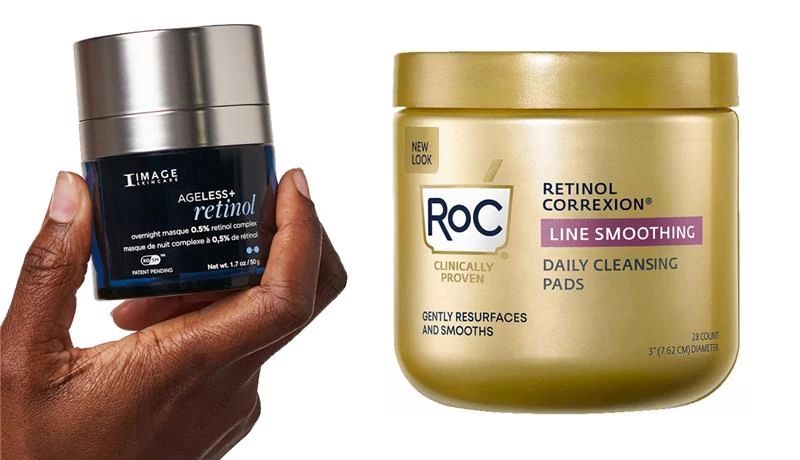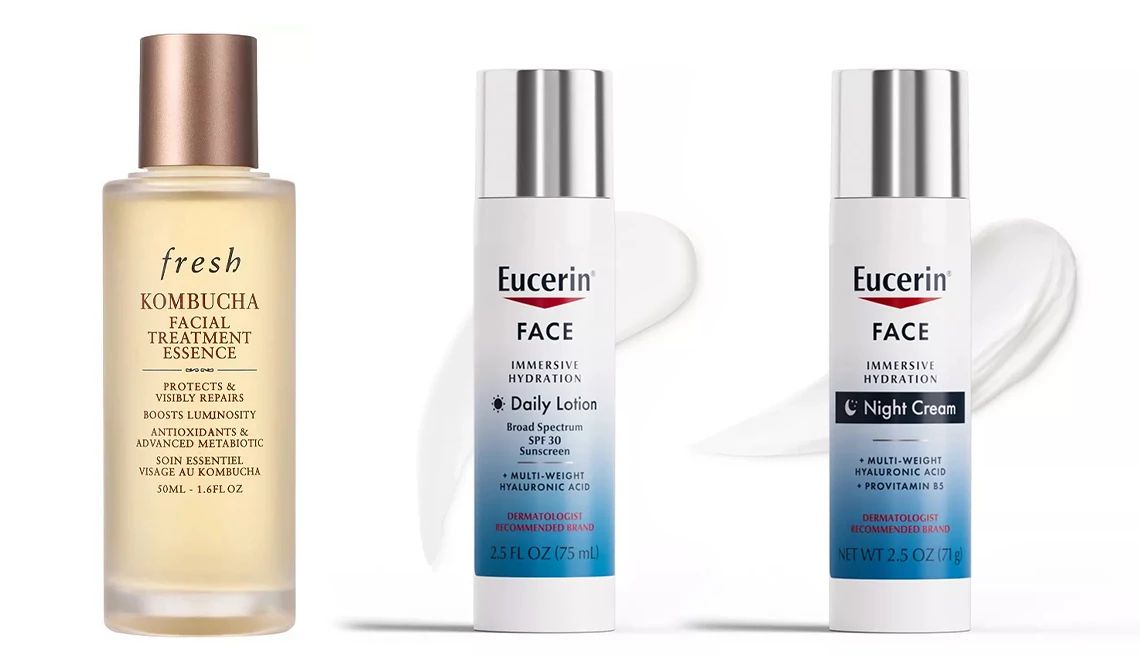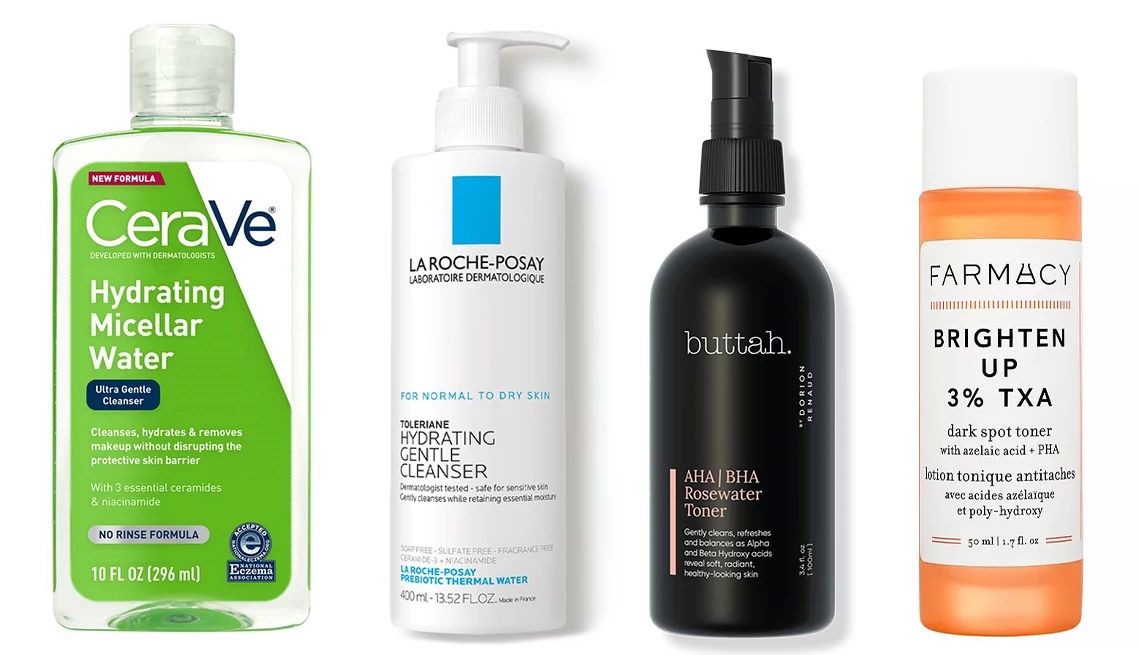AARP Hearing Center


The ever-evolving nature of skin can call for a few tweaks in your skin-care regimen or a complete product overhaul. And on the journey to unlocking your melanin’s full potential, no routine is set in stone.
To help you refresh your skin-care stash, we tapped three board-certified Black women dermatologists to let us in on their favorite products. Plus, the docs share tips for common skin woes, from dryness to discoloration, as well as powerhouse ingredients to prioritize.
1. Begin with the basics.
Gentle cleansers to try
La Roche-Posay Toleriane Hydrating Gentle Face Cleanser ($18, cvs.com) or Laneige Water Bank Gentle Gel Cleanser ($29, laneige.com)
Thiamidol serums to try
Eucerin Anti-Pigment Dual Serum ($40, cvs.com) or Nivea Cellular Luminous 630 Anti-Dark Spot Advanced Treatment Serum ($30, amazon.com)
Azelaic acid products to try
Paula’s Choice 10% Azelaic Acid Booster ($39, paulaschoice.com) or Farmacy Brighten Up 3% TXA Dark Spot Toner with Azelaic Acid ($17, kohls.com)
Tinted sunscreen moisturizers to try
NARS Pure Radiant Tinted Moisturizer SPF 30 ($49, ulta.com) or Dr. Jart+ Premium BB Tinted Moisturizer with SPF 40 and Niacinamide ($48, sephora.com)
Micellar waters to try
Garnier SkinActive Micellar Cleansing Water ($5, cvs.com) or CeraVe Hydrating Micellar Water ($15, ulta.com)
Alpha-hydroxy acid toners to try
Buttah Skin AHA/BHA Rosewater Toner ($21, ulta.com) or REN Clean Skincare Radiance Ready Steady Glow Daily AHA Tonic ($40, renskincare.com)
Before we get to the nitty-gritty, it’s important to note that everyone’s skin is unique. That’s why Ashley Patterson, a board-certified dermatologist at MetroDermin Atlanta, favors a more tailored approach to skin care over a one-size-fits-all regimen. But some things apply across the board. “At a minimum, I recommend applying a broad-spectrum SPF 30 sunscreen daily to any skin exposed to the sun, a hyaluronic acid serum for hydration and a retinoid to help with anti-aging,” Patterson says.
2. Treat and prevent hyperpigmentation.
According to Dara Spearman, a board-certified dermatologist and the founder of Radiant Dermatology Associates in Fort Wayne, Indiana, hyperpigmentation is the number one reason patients of color visit the dermatologist. A common concern among darker skin tones, hyperpigmentation often occurs following trauma, causing melanin-producing cells to make more pigment, thus leading to dark spots on the skin. “Consider brightening agents like niacinamide or kojic acid, as sun exposure often leads to hyperpigmentation,” Spearman says.
Other ingredients that target dark spots, according to Caroline Opene, medical director of the UCLA Health Skin of Color Clinic, include azelaic acid, tranexamic acid and thiamidol, “a new product that blocks melanin synthesis, thus clearing dark spots faster and reducing the likelihood of making new ones,” she explains.
Patterson recommends gentle exfoliation with over-the-counter products that contain alpha-hydroxy and beta-hydroxy acids, which could effectively treat dark spots by revealing a more radiant complexion. She notes vitamin C and sun protection as key factors in achieving a more even skin tone.









































































More From AARP
Revamp Your Closet and Beauty Collection
Learn what to keep and what to toss
Best 50+ Looks at New York City’s 2025 Met Gala
New York’s prestigious fashion event dazzles with this year’s theme, ‘Superfine,’ celebrating Black style
Summer Shoe Mistakes to Avoid
Choose footwear that is attractive and comfortable